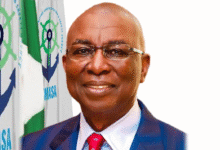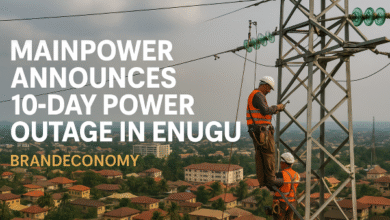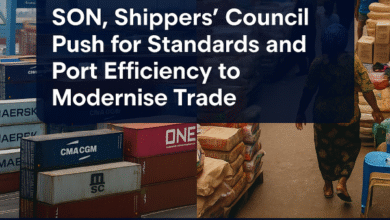DBN Sets Ambitious ₦1.8 Trillion Loan Target to Power MSME Growth, Eyes ₦3 Trillion Capital Raise
In a promising move that signals renewed commitment to catalysing Nigeria’s economic base, the Development Bank of Nigeria (DBN) has unveiled plans to expand its loan portfolio to over ₦1.8 trillion, aimed squarely at powering Micro, Small and Medium Enterprises (MSMEs)—the vital but underserved engine of national productivity.
This announcement, delivered by DBN Managing Director, Tony Okpanachi, during a media briefing in Lagos, sets the tone for the bank’s next five-year strategic cycle, with a complementary capital mobilisation drive targeting ₦3 trillion in debt and equity.
The Numbers Behind DBN’s Vision: A Gameplan for Inclusive Capital Deployment
DBN, which operates as a wholesale development finance institution, is not simply expanding its balance sheet—it is recalibrating Nigeria’s credit architecture by pushing liquidity into sectors and regions long neglected by conventional commercial banks.
Okpanachi revealed that the ₦1.8 trillion loan portfolio target is fresh—not cumulative, reflecting a high-growth ambition to double down on impact lending, particularly to businesses that are labour-intensive, women-led, or located in underdeveloped regions.
Key goals for the next five years include:
- ₦3 trillion in new capital (debt and equity)
- 40% of lending to benefit low-income entrepreneurs
- 20% of loans dedicated to women-owned businesses
- Over 2 million jobs created (direct and indirect)
- Expansion of green financing initiatives
- Heightened focus on manufacturing and agriculture
Why This Matters: DBN Is Betting Big on Nigeria’s Forgotten Backbone
While Nigeria’s financial sector is often criticised for favouring blue-chip corporates and politically connected borrowers, DBN is carving a contrarian path—backing the high-risk, high-impact MSME space with long-term capital.
This is not mere altruism. From a macroeconomic perspective, MSMEs represent over 90% of businesses in Nigeria, yet they access less than 5% of total bank credit. DBN’s plan, therefore, goes beyond development rhetoric—it’s a systemic market intervention.
“We are aspirational because we know there’s more to be done. What we did in the first five years is just the beginning,” said Okpanachi.
“Now, we are scaling up to meet Nigeria’s economic needs head-on.”
Capital Raising Strategy: From Global Collaborations to Local Bonds
To support this expanded loan book, DBN is casting a wide net for capital, blending global partnerships, concessional debt, and local bond issuances. While talks with international DFIs (Development Finance Institutions) are ongoing, Okpanachi confirmed that a domestic bond programme is also on the table, pending stable macroeconomic signals.
This dual-track approach is not only pragmatic but also strategic—it enables DBN to diversify its cost of capital, attract longer-term liquidity, and mitigate exposure to FX volatility—a key threat for many Nigeria-facing lenders today.
BRANDECONOMY TAKE: A Model of Smart Development Finance—But Execution Is Everything
DBN’s strategic pivot is laudable—and necessary. But turning this ambition into impact will require more than liquidity. It demands:
- Rigorous risk management frameworks
- Strengthened last-mile delivery through PFIs (Participating Financial Institutions)
- Ongoing capacity-building for MSME borrowers
- Policy alignment with the CBN and fiscal authorities to prevent crowding out
The bank’s plan to favour labour-intensive sectors like agriculture and manufacturing also speaks to smart targeting—especially in a high-unemployment environment where every naira of credit must translate to jobs and productivity.
However, the elephant in the room remains Nigeria’s macro instability—inflation, FX uncertainty, and insecurity. For DBN’s strategy to bear fruit, the broader economic environment must become more predictable and enabling.
📌 What Stakeholders Need to Watch:
- Will DBN’s partner banks (PFIs) pass on these funds efficiently and affordably?
- Can the bank manage scale without sacrificing credit quality?
- How effectively will women-owned and rural businesses access this capital?
- Will the incoming bonds find appetite in Nigeria’s shallow capital market?
Final Word: Development Finance With Teeth
As Nigeria battles stagflation, mass unemployment, and a fragile SME ecosystem, DBN’s ₦1.8 trillion credit expansion plan is a timely intervention that could alter the trajectory of grassroots entrepreneurship—if implemented with discipline, transparency, and targeted execution.
For now, all eyes are on DBN and its delivery partners to turn intent into inclusive impact. As we often say at BRANDECONOMY: development finance is not just about money—it’s about meaningfully moving markets and lives.
Follow BRANDECONOMY for sharp, analytical updates on finance, enterprise, and economic development across Nigeria and Africa.











